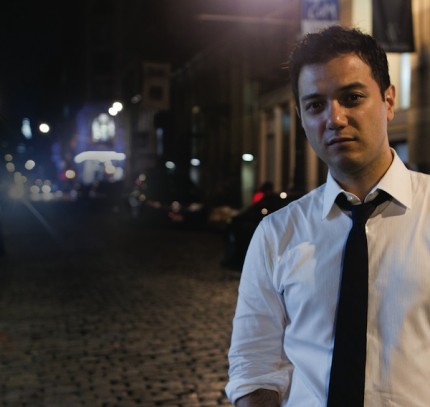Collaborative Arts Festival closes with Schumann and Brahms for all

In his remarks to the audience during Sunday afternoon’s concert at the Logan Center for the Arts, Nicholas Phan—the artistic director of the Collaborative Arts Institute of Chicago—emphasized two things: the music’s reflection of the intertwined personal lives of Johannes Brahms and the Schumann family; and Phan’s gratitude towards the colleagues who came together to mount the Collaborative Works Festival, of which this concert was the conclusion.
The cozy picture Phan conjured of friends gathering in the drawing room felt entirely consonant with the spirit of the afternoon’s concert.
After a performance of Schumann’s brief “Bei Schenkung eines Flügels” to set the scene, the two main items on the program were Schumann’s Spanische Liebeslieder and Brahms’s first set of Liebeslieder (Op. 52). The former cycle inspired the latter, and both employ the same forces: four singers and two pianists. The singers for this concert were Susanna Phillips, Kelly O’Connor, Joshua Hopkins, and Phan. The pianists were Myra Huang and Nicholas Hutchinson who serves as a codirector of the institute.
The piano parts for both of these pieces are replete with thick textures and syncopated figures that can make for tricky coordination between the two players. Though Huang and Hutchinson avoided any collisions or missteps, their playing sounded slightly uncomfortable, as if the music were not quite in their fingers. In the best performances of these pieces, Schumann’s Spanish-inflected rhythms have a snap to them and Brahms’s waltzes have a lilting charm, both of which seemed lacking in their performance of the more energetic moments. The pianists fared best in the more lyrical selections—such as “Flütenreicher Ebro” from the Schumann—which were nicely shaped.
The quartet of singers had no such difficulties with characterization, and all of them took fine solo turns. Particularly charming were Phan’s “Blaue Augen hat das Mädchen” in the Schumann (delivered almost as if spoken rather than sung) and O’Connor’s melancholic “Wohl schön bewandt” in the Brahms.
The singers’ finest moments were in the ensemble numbers. The contrasts between the tranquil outer section and the emphatic inner section of “Am Donaustrande” were beautifully judged. It was in exchanged smiling glances, well-modulated group dynamic shifts, and carefully dovetailed phrases that the image of domestic harmony and a sense of the singers’ own mutual enjoyment resonated most effectively.
This short program of music featured extensive spoken remarks on the background of the pieces, delivered by Nicholas Phan, which were engagingly delivered yet tended to duplicate much of the information contained within the program notes.
Posted in Performances





